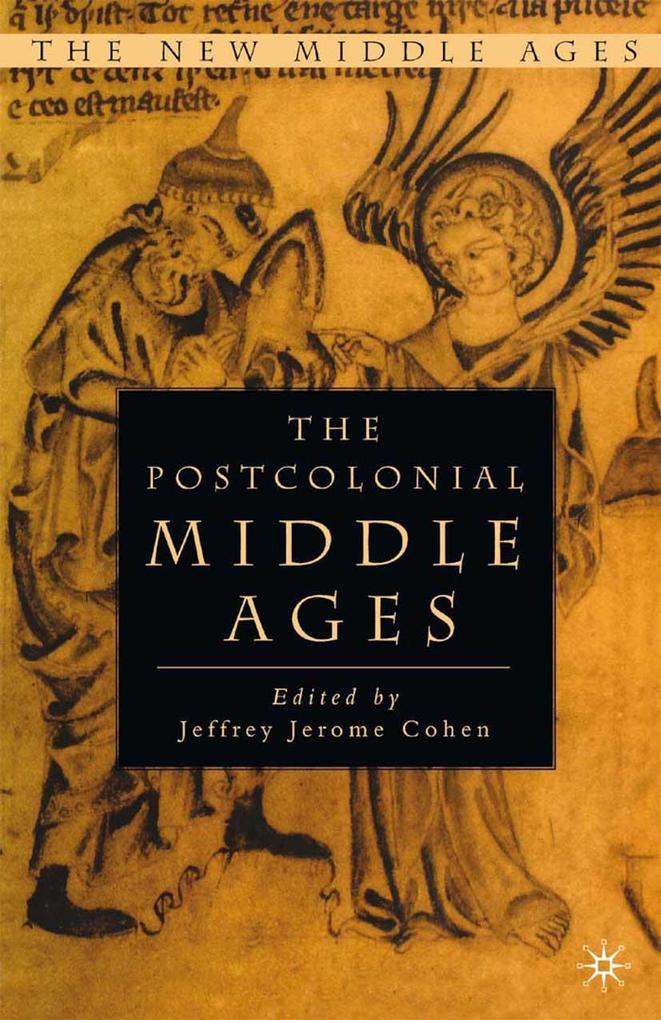
Zustellung: Di, 14.01. - Sa, 18.01.25
Versand in 2 Wochen
VersandkostenfreiBestellen & in Filiale abholen:
An increased awareness of the importance of minority and subjugated voices to the histories and narratives which have previously excluded them has led to a wide-spread interest in the effects of colonization and displacement. This collection of essays is the first to apply post-colonial theory to the Middle Ages, and to critique that theory through the excavation of a distant past. The essays examine the establishment of colony, empire, and nationalism in order to expose the mechanisms of oppression through which 'aboriginal' 'native' or simply pre-existent cultures are displaced, eradicated, or transformed.
Inhaltsverzeichnis
Introduction: Midcolonial From Due East to True North: Orientalism and Orientation; S.Conklin Akbari Coming Out of Exile: Dante on the Orient Express; K.Biddick Chaucer after Smithfield: From Postcolonial Writer to Imperialist Author; J.M. Bowers Cilician Armenian Metissage and Hetoum's La Fleur des Histoires de la Terre d'Orient; G.Burger Hybrids, Monsters, Borderlands: The Bodies of Gerald of Wales; J.J.Cohen Time Behind the Veil: The Media, the Middle Ages and Orientalism Now; K.Davis Native Studies: Orientalism and Medievalism; J.M.Ganim The Romance of England: Richard Coer de Lyon, Saracens, Jews and the Politics of Race and Nation; G.Heng Marking Time: Branwen, Daughter of Llyr and the Colonial Refrain; P.Ingham Fetishism, 1927, 1614, 1461; S.F.Kruger Common Language and Common Profit; K.Robertson Alien Nation: London's Aliens and Lydgate's Mummings for the Mercers and Goldsmiths; C.Sponsler Postcolonial Chaucer and the Virtual Jew; S.Tomasch Imperial Fetishism: Prester John among the Natives; M.Uebel
Produktdetails
Erscheinungsdatum
07. August 2001
Sprache
englisch
Auflage
2000 edition
Seitenanzahl
286
Reihe
The New Middle Ages
Herausgegeben von
J. Cohen
Verlag/Hersteller
Produktart
kartoniert
Abbildungen
VII, 286 p.
Gewicht
286 g
Größe (L/B/H)
208/161/21 mm
ISBN
9780312239817
Entdecken Sie mehr
Pressestimmen
'...an impressive accomplishment, exemplifying the many possible opportunities and potential difficulties medievalists face in engaging and contributing to a significant strand of cultural studies.' - Speculum 'The volume is a very strong compilation, and indeed a useful guide to the richness of post-colonial enquiry...The real strength of this book resides in the range and diversity of the topics it examines and the quality of many of the contributions.' - Cynthia J. Neville, Canadian Journal of History
Bewertungen
0 Bewertungen
Es wurden noch keine Bewertungen abgegeben. Schreiben Sie die erste Bewertung zu "The Postcolonial Middle Ages" und helfen Sie damit anderen bei der Kaufentscheidung.










